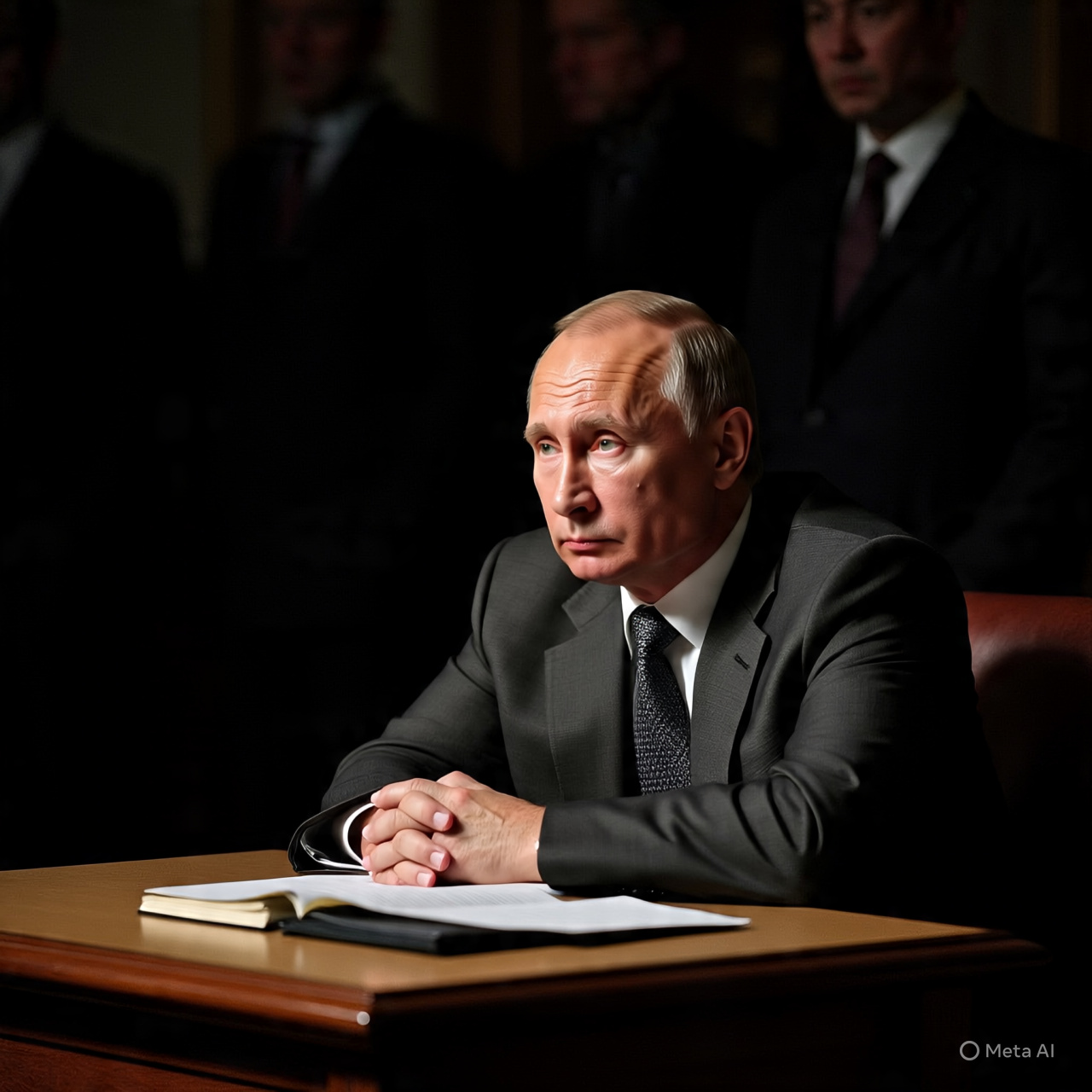FnF News
🌐 FNF News | World Power & Strategy
Published: June 19, 2025
By: Khadija Khan, Chief Global Affairs Correspondent
Putin’s “Dark Suits” Remark Sparks Global Conversation About Power, Puppets, and the Illusion of Leadership
St. Petersburg, Russia — In a remark that ricocheted through media outlets and political circles around the globe, Russian President Vladimir Putin this week claimed that newly elected leaders in the West are swiftly neutralized by unelected operatives—what he cryptically referred to as “people in dark suits with briefcases.”
“When a person is elected, they may have some ideas. Then people in dark suits with briefcases arrive. These people start explaining how things are done—and instantly everything changes,” Putin told an international forum at the St. Petersburg International Economic Conference, smiling as the audience broke into knowing laughter.
Though brief, the comment was piercing. At a time when trust in Western institutions is fracturing, and populist movements in Europe and the United States are rising once more, Putin’s insinuation landed like a well-aimed missile.
Not Just a Joke: A Strategy of Discrediting Democracy
Analysts say Putin’s rhetorical attack on Western democracy wasn’t accidental.
“This wasn’t just a sly observation,” said Dr. Fiona McCulloch, a political theorist at King’s College London. “It was a calculated strike against the very idea of accountable government.”
Putin, whose two-decade reign over Russia has included constitutional overhauls, suppression of dissent, and military adventurism, has often mocked Western notions of transparency and electoral power. But this time, he weaponized Western cynicism against itself, portraying even American presidents as mere actors in a stage play directed by unseen bureaucrats and entrenched elites.
The Deep State Dog Whistle: Echoes Heard Around the World
To many observers, Putin’s “dark suits” are a thinly veiled reference to the so-called “deep state”—a concept long dismissed by mainstream media as conspiracy theory, but increasingly discussed by mainstream citizens across Western democracies.
- In the United States, former President Donald Trump often railed against a “deep state” working to undermine his presidency. He fired FBI directors, clashed with intelligence agencies, and accused career civil servants of sabotaging his agenda.
- In France, the Yellow Vest movement frequently accused Parisian elites and unelected EU technocrats of ignoring the democratic will of the people.
- In Britain, Brexit was often framed as a war against Brussels bureaucrats and the British civil service elite.
Putin’s commentary feeds into this narrative—offering validation for those who already suspect that real power lies outside parliaments and presidential offices.
“People elected Biden, and they still got endless war. They elected Trump, and the border stayed open. Putin is asking—who’s really in charge?” said Nigel Farrow, a former British diplomat now writing for The American Thinker.
A Global Chess Move: Putin Paints Himself as the Anti-Elite
Though critics accuse Putin of being the ultimate oligarch-backed autocrat, the Russian leader has long cultivated an image of “anti-globalist patriot”—a man allegedly free from the influence of shadowy globalist institutions like NATO, the IMF, or the EU.
By casting Western leaders as powerless frontmen, Putin places himself in contrast—as a strongman who answers to no one but the Russian people. This message resonates not only within Russia’s borders, but with growing populist factions across Europe, South America, and even in America’s own heartland.
“For many disillusioned citizens, Putin’s image—ironically—represents order and agency,” said Dr. Natalia Raskin, director of the Eurasian Political Trust Index. “He might not be trusted, but he’s seen as real. That’s a rare currency in today’s politics.”
Western Response: Denials, Silence, and Nervous Laughter
Unsurprisingly, Western officials have offered no formal response to Putin’s remarks. The U.S. State Department declined comment, and White House Press Secretary Maylene Cruz simply laughed when asked about the “dark suits” at a press briefing.
But privately, sources inside Washington confirmed there was “discomfort” over the remark—particularly its accuracy in echoing populist American sentiment.
“There’s a kernel of truth in what he said,” admitted a retired CIA officer speaking to FNF News under condition of anonymity. “Every administration walks into the Oval Office with big dreams—until the briefings start. You’re told what you can’t do. What will start wars. What will collapse markets. The leash is real.”
Historical Parallels: Who Really Rules?
The idea that elected leaders are controlled by non-elected actors is not new.
- JFK privately worried about the power of intelligence agencies after the Bay of Pigs.
- Eisenhower warned against the “military-industrial complex.”
- Barack Obama was often accused of being too deferential to Wall Street.
- Joe Biden, despite his campaign rhetoric, has faced criticism from progressives for maintaining many of Trump’s foreign and immigration policies.
Putin’s comment taps into that century-long anxiety: Are presidents ever really free to act?
Conclusion: The Power of the Unspoken
In just one sentence, Vladimir Putin may have done more to undermine global faith in Western democratic autonomy than any tank or cyberattack could. Whether it was truth, trolling, or both—it worked.
As the world tilts toward multipolar power and trust in institutions continues to erode, one thing is certain: the question of who truly runs the world is no longer rhetorical.
“It was a warning,” said Dr. McCulloch. “But also a message: if you feel powerless in your democracy, maybe it’s not broken—maybe it was never yours to begin with.”

